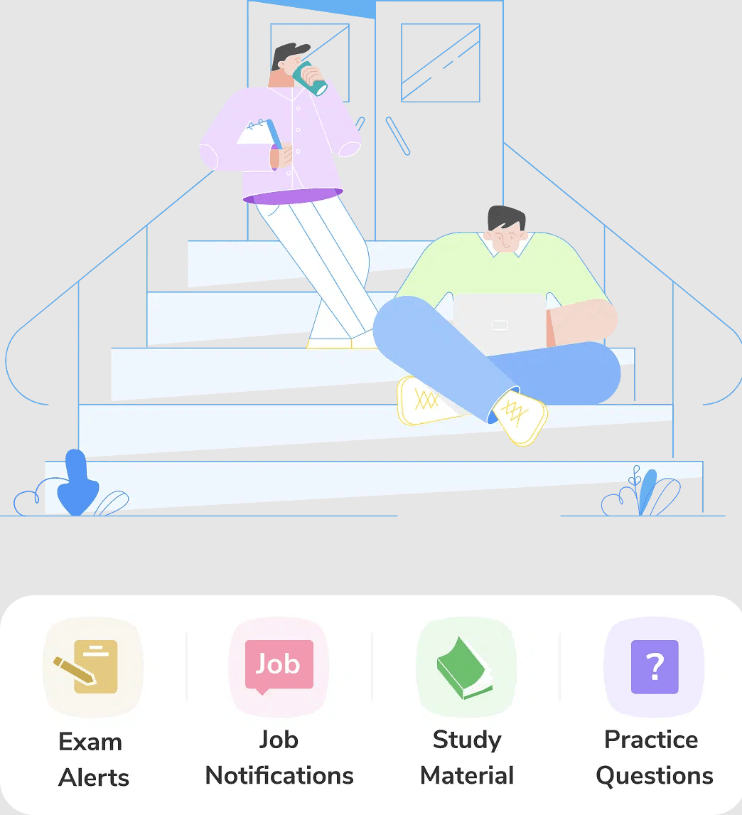Post Name : UGC NET Library and Information Science Syllabus 2024
Post Date : 27 February , 2024
Post Description : The University Grants Commission (UGC) has released the UGC NET Library and Information Science Syllabus 2024 on its official website @ugcnet.nta.ac.in. The National Testing Agency conducts the UGC NET Library and Information Science examination annually for candidates aspiring to become JRF or Assistant Professor. To effectively prepare for the UGC NET 2024 exam, candidates must review the updated UGC NET Library and Information Science Syllabus, which covers two papers, Paper A and Paper B.
UGC NET Library and Information Science Syllabus 2024 Overview
The UGC NET Library and Information Science examination in 2024 will be conducted by the National Testing Agency (NTA). The exam aims to offer Assistant Professor and Junior Research Fellowship (JRF) posts. The exam consists of two papers, Paper 1 with 100 marks and Paper 2 with 200 marks, and it is a 3-hour online test.
| UGC NET Library and Information Science Syllabus 2024 Overview | |
|---|---|
| Conducting Body | National Testing Agency (NTA) |
| Exam Name | UGC NET 2024 |
| Post Category | UGC NET Library and Information Science Syllabus 2024 |
| Posts | Assistant Professor and Junior Research Fellowship (JRF) |
| UGC NET Exam Date 2024 | June 10-21, 2024 |
| Exam Level | National |
| Exam Frequency | Twice a year |
| Mode of Exam | Online |
| Medium of Exam | English and Hindi |
| Time Duration | 3 Hours |
| Number of Papers and Total Marks | Paper 1: 100 Marks and Paper 2: 200 marks |
| Negative Marking | No Negative Marking |
| Exam Helpdesk No. | 0120-6895200 |
| Official Website | https://ugcnet.nta.nic.in/ |
UGC NET Library and Information Science Syllabus 2024 PDF
To enhance your preparation for the UGC NET Library and Information Science 2024 exam, click on the given link to download the unit-wise UGC NET Library and Information Science Syllabus 2024 PDF. Strengthen your preparation for the UGC NET 2024 exam and increase your chances of success with this valuable resource.
UGC NET Library and Information Science Syllabus 2024 Hindi PDF
यूजीसी नेट लाइब्रेरी और इंफॉर्मेशन साइंस 2024 परीक्षा के लिए अपनी तैयारी बढ़ाने के लिए, इकाईवार यूजीसी नेट लाइब्रेरी और इंफॉर्मेशन साइंस सिलेबस 2024 पीडीएफ डाउनलोड करने के लिए दिए गए लिंक पर क्लिक करें। यूजीसी नेट 2024 परीक्षा के लिए अपनी तैयारी मजबूत करें और इस मूल्यवान संसाधन के साथ सफलता की संभावना बढ़ाएं।
UGC NET Library and Information Science Syllabus 2024 Unit Wise
Prepare for the UGC NET Library and Information Science 2024 exam by following the unit-wise syllabus. The syllabus provides a structured guideline for each unit, ensuring comprehensive understanding and preparation. Here’s the UGC NET Library and Information Science Syllabus 2024, broken down unit-wise:
| UGC NET Library and Information Science Syllabus 2024 Unit Wise | |
|---|---|
| Unit I |
|
| Unit II |
|
| Unit III |
|
| Unit IV |
|
| Unit V |
|
| Unit VI |
|
| Unit VII |
|
| Unit VIII |
|
| Unit IX |
|
| Unit X |
|
UGC NET Library and Information Science Exam Pattern 2024
In the UGC NET Library and Information Science Exam Pattern 2024, there are two papers. Paper 1 includes sections like Teaching Aptitude, Research Aptitude, Reading Comprehension, Communication, Reasoning, Logical Reasoning, Data Interpretation, ICT, People & Environment, and Higher Education System. Paper 2 focuses on Library and Information Science. Here is an overview of the UGC NET Library and Information Science Exam Pattern 2024.
| UGC NET Library and Information Science Exam Pattern 2024 | ||||
|---|---|---|---|---|
| Paper | Sections | Number of Questions | Maximum Marks | Duration |
| Paper 1 | Teaching Aptitude, Research Aptitude, Reading Comprehension, Communication, Reasoning (including Maths), Logical Reasoning, Data Interpretation, Information & Communication Technology (ICT), People & Environment, and Higher Education System | 50 | 100 | 3 Hours |
| Paper 2 | Library and Information Science | 100 | 200 | |
UGC NET Library and Information Science Minimum Qualifying Marks
The UGC NET Library and Information Science exam requires candidates to secure specific minimum qualifying marks based on their categories. Here is an overview of UGC NET Library and Information Science Minimum Qualifying Marks.
| UGC NET Library and Information Science Minimum Qualifying Marks | |
|---|---|
| Category | Minimum Qualifying Marks |
| General | 40% |
| OBC/SC/ST | 35% |
Best Books to Cover UGC NET Library and Information Science Syllabus 2024
To cover the UGC NET Library and Information Science syllabus for 2024, consider the recommended books given below. These UGC NET books help you prepare for the UGC NET Library and Informatics 2024 exam:
| Best Books to Cover UGC NET Library and Information Science Syllabus 2024 | |
|---|---|
| Books Name | Author Name/Name of the Publishers |
| Theory of Classification | Krishan Kumar |
| Library Administration: Theory and Practice | R L Mittal |
| An Introduction To Library Classification | W C B Sayers |
| Research Methods in Library and Information Science | Krishan Kumar |
| R Gupta’s Popular Master Guide UGC-NET Library and Information Science Paper II | Ravindra Pandey |


